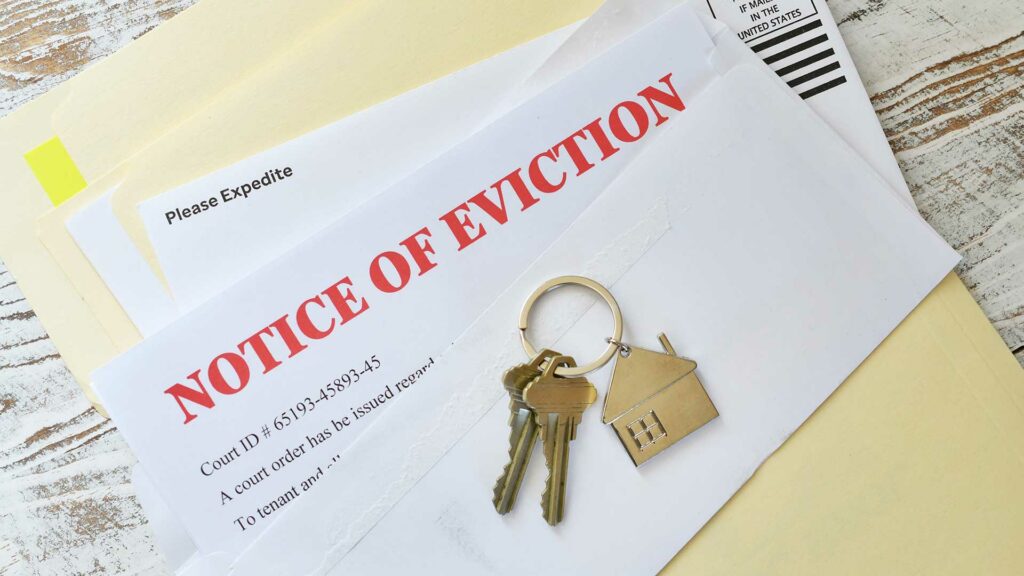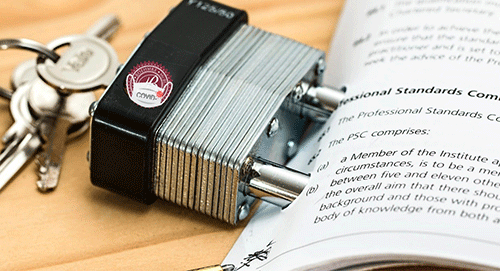What does force majeure mean?
The term force majeure refers to an extraordinary event or circumstance beyond the control of the parties in a contract, which renders either one or both parties unable to perform their contractual obligations. When this occurs, the party who is unable to perform its obligation is absolved from liability by raising impossibility of performance as a defence. Natural disasters, plagues and acts of State are all examples of circumstances which could be classified as force majeure.
In some cases, parties have a force majeure clause included in their contract. Where this is not the case, the common law of impossibility applies to the contract.
Force majeure clauses
In the event that parties have included a force majeure clause in a contract, the parties are able to regulate the consequences that will follow in the event of impossibility of performance. In this context, parties have agreed whether or not performance by the party who is unable to perform should be suspended, when the suspension should lapse and whether or not the contract will terminate automatically.
Common law of impossibility
The case of Unibank Savings & Loans Ltd (formerly Community Bank) v Absa Bank Ltd 2000 (4) SA 191 (W) outlined the common law position of impossibility of performance. The court held that when performance of a contract is impossible due to unforeseen events that are not caused by the parties to the contract, the parties are excused from performing in terms of the contract. The impossibility, however, must be absolute and objective as opposed to relative or subjective. The court highlighted that subjective impossibility to receive or to perform does not terminate the contract or extinguish the obligations in terms thereof.
The more recent case of Glencore Grain Africa (Pty) Ltd v Du Plessis NO & others [2007] JOL 21043 (O) highlighted the supervening impossibility of performance requirements mentioned above, such as the impossibility must be objective, absolute and must not be the fault of either party. The court went further, to emphasize that the impossibility must be unavoidable by a reasona ble person and that the fact that a certain disaster or event was foreseeable does not necessarily mean that it ought to have been foreseeable by a reasonable person.
In MV Snow Crystal, Transnet Ltd t/a National Ports Authority v Owner of MV Snow Crystal [2008] 3 All SA 255 (SCA) the court held that establishing the existence of a force majeure alone is insufficient for successful reliance on the defence of impossibility of performance. The court outlined various factors that need to be taken into account in assessing whether a party may rely on impossibility of performance as a defence, including “the nature of the contract, the relation of the parties, the circumstances of the case, and the nature of the impossibility invoked by the defendant, to see whether the general rule ought, in the particular circumstances of the case, to be applied”. These considerations were mainly introduced as a safeguard against the abuse of this defence, such as where the impossibility is self-created by one of the parties.
Is COVID-19 a force majeure?
In determining whether the COVID-19 pandemic and the subsequent lockdown regulations operate as a force majeure and suspend a party’s contractual obligations, an assessment of the specific context of the parties involved needs to be made (as described above).
In the context of South Africa, President Cyril Ramaphosa declared a “national state of disaster” as a result of COVID-19, in an address to the nation on 15 March 2020. Most recently, the Alert Level 4 Regulations released on 29 April 2020 (“the Regulations”) outlined the new restrictions in place to combat this epidemic. This declaration and the Regulations made in terms of this declaration have imposed significant, nationwide restrictions. In order to rely on a force majeure clause to avoid contractual performance, a party would need to show that the impossibility of performance is linked to these events. If the prohibitions imposed by the Regulations do not render contractual performance impossible, then a party to a contract will not yet be able to invoke a force majeure clause, unless such a clause is included in their contract.
What steps need to be taken by the parties?
Where a party seeks to rely on a force majeure clause or where the party anticipates that a force majeure clause will be relied upon, one must start by thoroughly going through the provisions of their agreement. This would be to determine whether the clause covers the occurrence of the circumstances that result from the spread of the coronavirus. In this regard, you have widely or narrowly drafted force majeure provisions. A narrow provision is one that specifically lists the events which may occur and therefore excludes any other event outside of those listed which may be relied on to invoke a force majeure clause. On the other hand, a widely drafted provision will normally include, in addition to the listed events, what is termed a “catch-all phrase” such as “any event arising beyond the control of the parties, rendering the performance impossible”. Therefore, as a party that seeks to rely on a force majeure clause as a result of the virus outbreak, it is essential that they ensure that agreement concerned between the parties is wide enough to include the said outbreak.
Material adverse change clauses (“MAC clauses”)
Another type of clause which is relevant to a force majeure event is a material adverse change clause. This clause allocates the risks that may materialise as a result of a force majeure. These clauses operate where an unforeseen state of affairs results in a material adverse change to one or more parties to a contract (financially or in their capacity to perform) or hinders the achievement of a contractual objective. Although similar to force majeure clauses in that both function in the context of impossibility of performance arising from unforeseen events, MAC clauses are distinguishable in their emphasis on the impact of the unforeseen events on parties rather than the unforeseen event itself.
Whether or not a MAC clause in a contract will be enforceable during the COVID-19 pandemic will depend on a case-by-case analysis. Factors to consider include how the clause is constructed, what circumstances / events are referred to, what the impact is on the parties or the object(s) of the agreements (and degree thereof).
During the pandemic, those wishing to rely on such a clause in their contract should do so with care as the consequence of the argument failing in court could result in claims for damages being raised, damage to a business’s reputation or, more likely, a claim raised that the applicant party has shown reluctance to perform their obligations under the contract (repudiation). The best way forward in these times would be for each party to assess the situation going forward and take every measure reasonably possible to mitigate against the financial hardships a particular business (or party to a contract) may experience as a result, before relying on the MAC clause.
Practical implications: Protection afforded by the Consumer Protection Act 68 of 2008 (“CPA”)
The following provisions of the CPA provide protection in circumstances which may arise during the COVID-19 lockdown. The protection of the CPA is only available to parties who meet the following requirements:
- The provisions of the Act are only applicable to (a) individuals or (b) companies with a turnover of less than R1 million
- The provisions do not apply to franchises or special-order goods
- The provisions only apply to agreements concluded within South Africa
Section 17 of the CPA gives consumers who concluded a contractual agreement without reducing the agreement to writing a right to cancel such agreements. This may be particularly prevalent where an airline or hotel booking has been made. Whilst the consumer is given a right to cancel their booking under the CPA, the Act does also provide some relief to suppliers by allowing them to charge a deposit or ‘reasonable’ cancellation fee. The word ‘reasonable’ imposes a rather broad and subjective standard on suppliers – and it is often difficult to lay down hard and fast rules as to what exactly constitutes ‘reasonableness’. Our courts have, however, suggested a common sense approach as to what would constitute a ‘reasonable’ cancellation fee, based on the particular circumstances of each individual case.
Another important provision in light of the current circumstances, is section 17(5) of the CPA. This section stipulates that if a consumer is unable to fulfil his obligations due to hospitalization or death, he/she is entitled to a full refund from the supplier.
Section 14 of the CPA is of great importance, particularly in relation to commercial and rental agreements. This section deals with the renewal of fixed term agreements and provides consumers with the right to cancel a fixed term agreement by giving suppliers 20 business days written notice. Once again, caution must be given in that the CPA does allow suppliers to charge a ‘reasonable’ cancellation fee, should this provision be exercised by the consumer.
Practical implications: Obligations under lease agreements
During the COVID-19 pandemic and lockdown, there are measures that can be used by parties in a lease agreement to relieve the financial pressures caused by the pandemic:
- Landlords may sign a waiver so that the lessee’s deposit can be used as rent instead of it being held in trust. To affect this change, an amendment to the rental memorandum by inserting a clause should be made. This clause should include a provision reinstating the deposit in instalments by a certain date
- Parties may also agree to a reduction in rent for a temporary period
Further, these times do bring up the questions of tenants’ obligation to pay rent. The tenant’s obligation will probably depend on weighing their history of payment (if they are a good tenant who pays rent on time) against the impact of the force majeure event. It is only when a tenant’s beneficial use of the property is directly affected that they will be legally entitled to a remission of rent. In the situation where a tenant cannot earn an income, the effect is only indirect and the tenant generally won’t, therefore, be released from their obligation to pay rent.
In the context of residential rental agreements, the tenants will be enjoying full use and enjoyment of the leased property. This means that, despite the fact the tenant may not be earning their full income, their obligation to pay rental is unaffected. However, a commercial tenant who cannot use the property could be entitled to remission of rental. However, Judicial Officers will evaluate these situations on a case by case basis.
In terms of evictions, the position established by the Regulations is that Courts may grant evictions orders, but they shall be suspended until the last day of the Alert Level 4 period unless the court states otherwise.
Practical implications: The functioning of parental contact
The effects of the national COVID19 shutdown have had serious impacts on the movement of children and parental custody during the country’s 21-day lockdown period.
The current Regulations now permit the movement of children between co-holders of parental responsibilities in the same metropolitan area of district municipality, provided the parents are in possession of a court order, existing parenting plan (registered with the Family Advocate) or Form 3 of Annexure A of the Regulations (issued by a magistrate). Parents need to keep these documents on them when transporting children, in case they are stopped at a police roadblock during the lockdown period. Movement will not be allowed if one of the child’s households has recently been infected, or has reasonably suspected to be infected, by COVID-19, or if there is a reasonable suspicion that a member of his/her household has been in contact with an individual infected with the virus.
For more information please contact Stephen Koen on skoen@bissets.com or via:
Switchboard: 021-441 9800
Website: www.bissets.com
Bissets Whatsapp: 072 370 0416 – our Client Liaison, Tracy, will put you in contact with the relevant professional.






















 In terms of the Unemployment Insurance Contributions Act, which applies to all employers and employees (unless the employee works less than 24 hours a month for a particular employer), both employers and employees must contribute to the Unemployment Insurance Fund (UIF). The Fund was established to protect employees from the harmful social and economic effects of unemployment.
In terms of the Unemployment Insurance Contributions Act, which applies to all employers and employees (unless the employee works less than 24 hours a month for a particular employer), both employers and employees must contribute to the Unemployment Insurance Fund (UIF). The Fund was established to protect employees from the harmful social and economic effects of unemployment.





